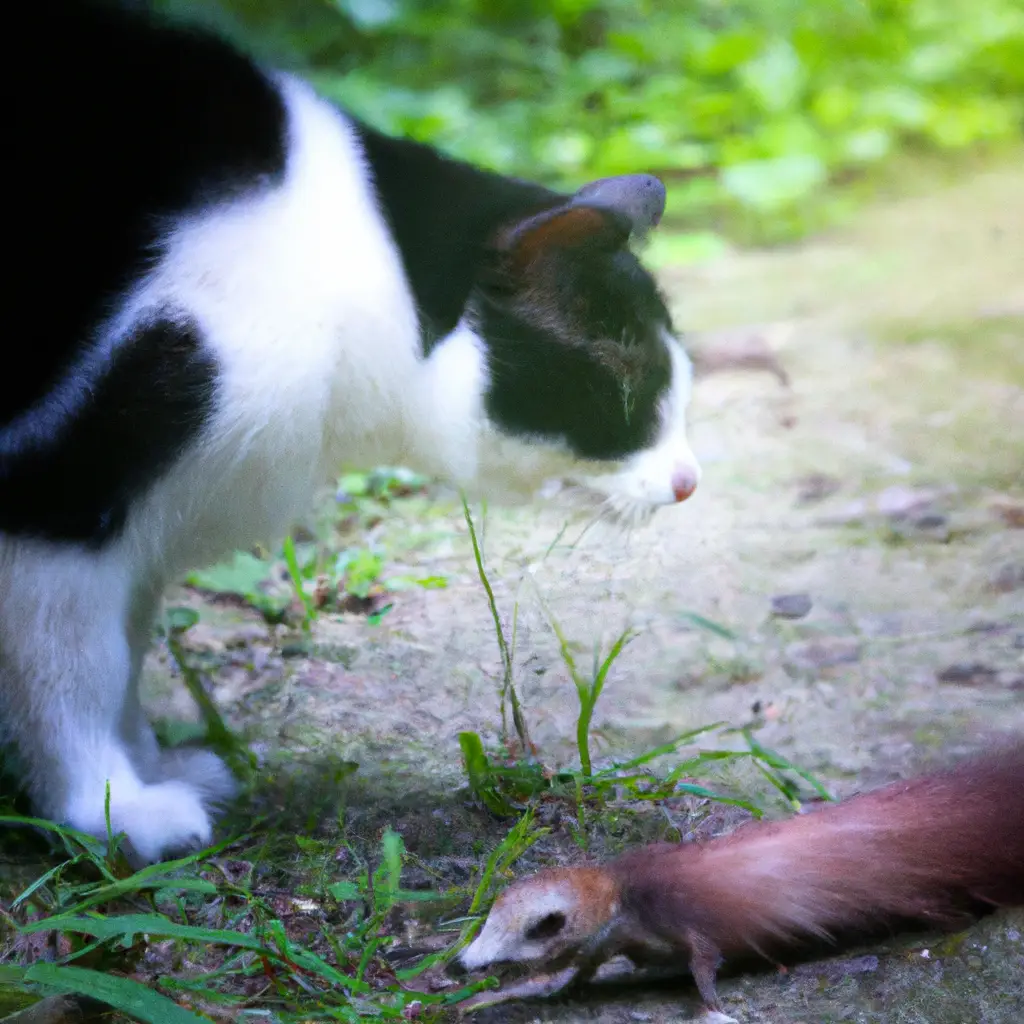Do skunks pose a threat to our feline friends? It's the million-dollar question puzzling pet owners around the globe. As our furry companions frolic through our gardens, it's only natural for us to wonder if the infamous and odoriferous skunk can do the unthinkable. With the rising concern among pet owners, we dive deep to investigate: will skunks kill cats? Plunge into this riveting read to learn all about the dynamics between skunks and cats, and how to keep our feline friends safe in the presence of this peculiar animal. Get ready to be surprised!
Can Skunks Harm Your Feline Friend?
The topic of whether skunks can kill or harm cats is one that many pet owners are curious about. While skunks are generally not aggressive towards cats, there are situations in which they can pose a danger to your feline friend. In this blog post, we'll explore the relationship between skunks and cats in detail, using insights from animal behavior experts and veterinarians.
Understanding Skunk Behavior and Risks to Cats
Skunks are primarily nocturnal animals, so it's rare for them to encounter cats during the day. However, when skunks do come into contact with cats, they may react defensively by spraying a pungent odor that can cause respiratory problems and other health issues for your cat. In some cases, skunks may also transmit diseases to cats such as rabies or leptospirosis. To avoid these risks, it's important to be aware of where skunks are likely to live and how to minimize contact between skunks and your cat.
Tips for Protecting Your Cat from Skunks
If you live in an area with known skunk populations, there are several steps you can take to protect your cat from harm. First, ensure that your cat is up to date on all necessary vaccinations, including those for rabies and other diseases that skunks may carry. Second, keep your cat indoors at night to minimize the risk of encountering skunks. If you must let your cat outside, supervise them closely and consider investing in a fenced-in area or an outdoor cat enclosure. These measures can help to ensure that your cat stays safe and healthy even in the presence of skunks.
In Conclusion
While skunks may pose a risk to cats in certain scenarios, it's important to remember that these animals are generally not aggressive and will only spray or attack in self-defense. By taking the appropriate precautions and working with your veterinarian to ensure your cat is healthy and protected, you can minimize the risk of harm from skunks and other wildlife in your area.
Can skunks be dangerous to cats?
Yes, skunks can be dangerous to cats as they can spray a strong-smelling liquid that can irritate a cat's eyes and skin.
Do skunks attack cats?
Skunks are not known to attack cats, but they may defend themselves if they feel threatened.
Will skunks kill cats?
It is very rare for skunks to kill cats. Skunks are not predators and prefer to avoid confrontation.
What should I do if my cat is sprayed by a skunk?
If your cat is sprayed by a skunk, wash them with a mixture of hydrogen peroxide, baking soda, and dish soap to neutralize the odor. If they have been sprayed in the eyes, contact your veterinarian.
How can I prevent skunks from attacking my cat?
To prevent skunks from attacking your cat, keep your cat indoors at night. If you let your cat outside during the day, supervise them and keep them away from areas where skunks may be present.
Will Skunks Kill Cats: A Recap
Skunks are known for their strong odor and the ability to spray it when feeling threatened or scared. However, many people are wondering if skunks are a threat to cats. After thorough research and analysis, it has been concluded that skunks are unlikely to kill cats as they are not aggressive animals.
Skunks are omnivorous but mostly feed on insects and fruits. They are also nocturnal and prefer to stay hidden during the day. Cats, on the other hand, are natural predators and may sometimes chase or attack skunks if they feel threatened.
It is still advisable to keep your cats away from skunks to avoid any possible confrontation and the risk of getting sprayed. If your cat gets sprayed by a skunk, it is best to wash them with a mixture of hydrogen peroxide, baking soda, and dish soap to eliminate the smell.
In conclusion, skunks are not likely to kill cats as they prefer to avoid confrontation and are not aggressive animals. However, it is still recommended to keep your cats away from skunks to prevent any possible harm.


